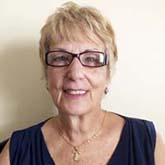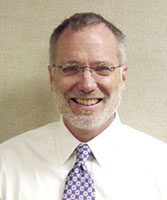Ten executives are the first to complete a formation program launched in 2011 by the Franciscan Sisters of Chicago Service Corporation. The program guides the health system's executive leaders in developing a thorough understanding of Catholic and Franciscan tradition so they can ground their work in the Catholic health mission.

Lindish
"Taking more time for reflection and more clearly identifying the relationship between our decisions and our identity is one significant outcome from this opportunity," Jeanette Lindish, vice president of mission integration and pastoral care for the Homewood, Ill.-based senior living system, said of the leaders who completed the inaugural program in the spring, herself included. "We developed more confidence concerning Catholic social teaching and can participate more fully in the FSCSC's Franciscan decision-making model."
Funded in part by a grant from FSCSC's sponsors, the Franciscan Sisters of Chicago, the executive leader formation program is open to executive directors at FSCSC's eight eldercare facilities, as well as to system-level corporate directors, vice presidents and "c-suite" executives. In the future, it will be open to local community directors throughout FSCSC's four-state service area. A new group of participants is selected annually to begin the three-year executive formation program. Each group is composed of 12 or fewer executives.
Faculty of the Catholic Theological Union of Chicago present the courses, which cover the vocation of a Catholic health care leader, Jesus' ministry, the charism of St. Francis and the Franciscan Sisters of Chicago, Catholic social teaching, Pope Francis' vision for the church and leadership as a ministry.
The program includes readings, assignments, instruction and personal reflection. Enrollees participate in two in-person seminars/spiritual retreats annually during their formation experience. Graduates have an opportunity to participate in a Franciscan pilgrimage in Rome and Assisi, Italy.
The FSCSC system also is developing formation programs for its corporate board, sponsorship council and corporate staff as well as for its local directors, managers and staff. All of these offerings will include formation around the same subject areas as the executive formation program, but each will be presented in a way that meets the needs of the particular group. The FSCSC board process will combine reading assignments, video segments and presentations from outside speakers and the mission department.
The Franciscan Sisters are in the process of developing a sponsorship council as they consider the future needs of the order and their ministries. The sponsorship council is helping to prepare FSCSC for a transition to lay sponsorship. As with the executive program, the Catholic Theological Union will partner in the formation for this council.
For the community-level directors and managers, FSCSC mission staff will present formation course work in-person, at the facilities where these leaders work. The FSCSC mission staff will present in-person formation programs once or twice a year to staff of each of the system's facilities, at all-staff meetings. Graduates of the executive formation program will serve as facilitators for the facility-level formation activities.
Lindish said that while FSCSC had long offered formation experiences to its executives prior to introducing the current programming, not every executive had attended the same formation training, and so there was no standard shared formation education and experience among them.

Fish
Robert Fish, FSCSC director of ministry formation, was in the first formation group. He said Vatican II encouraged the participation of all baptized people in the life and mission of the church. The Franciscan Sisters, like other smaller religious orders, are taking steps to prepare laity for the move to a future sponsorship role under the public juridic person structure. Fish said, "If our sisters are going to entrust the ministry to laypeople, we want to ensure that everyone entrusted with that gift" is properly prepared to accept it.
FSCSC sponsors and executives including Lindish and Fish relied on resources from CHA and the Institute of Pastoral Studies at Loyola University Chicago to develop the program's goals and course content before turning to the Catholic Theological Union to continue teaching the courses.
Fish said FSCSC wants their leaders and associates to be grounded in the mission as they shape the vision for the system. "We want them to act instinctively, and we're helping them develop those reflexes" to act in accordance with the mission and values of the ministry.
Copyright © 2014 by the Catholic Health Association
of the United States
For reprint permission, contact Betty Crosby or call (314) 253-3477.